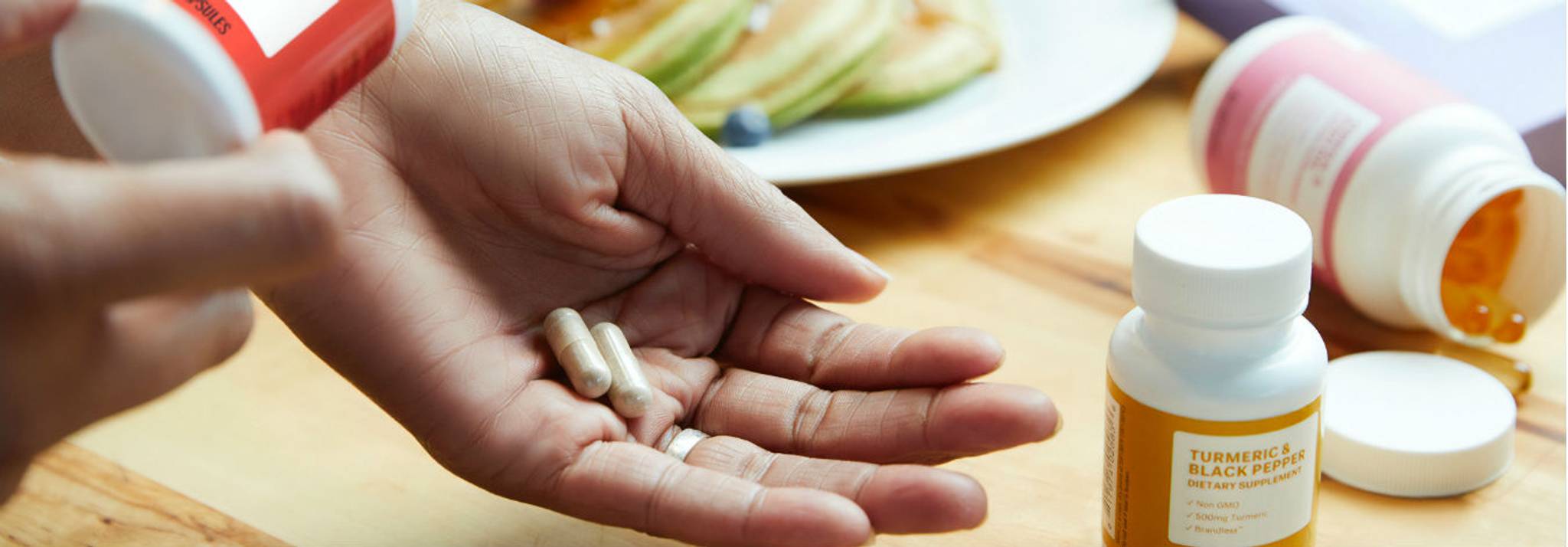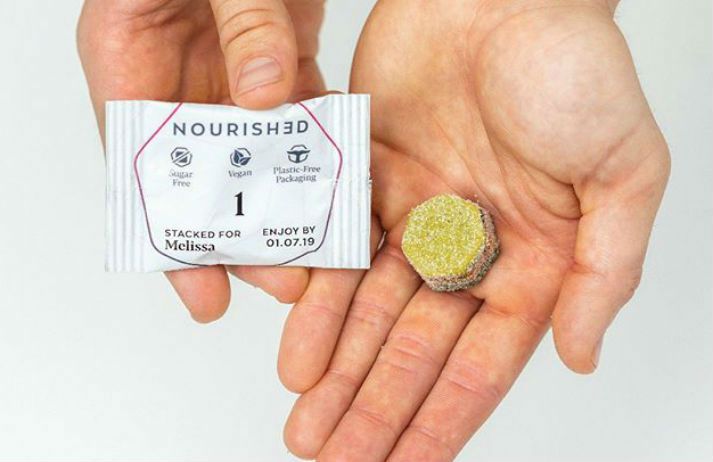
British start-up Nourished is creating 3D-printed personalised vitamins made from 28 different ‘nourishments’. With people increasingly interested in taking control of their wellbeing, brands that offer bespoke products and subtle health solutions are growing in popularity. We explore the insights behind why people are falling for personalised self-care.
Nourished offers customers a supplement subscription service with personalised vitamins made by a 3D printer. After you fill out a questionnaire about your lifestyle, wellness goals, and health concerns, an algorithm creates customised gummy vitamins to match up with your preferences. 3D-printing the vitamins means that the separate components don’t interact like they would in a capsule – instead, they’re ‘stacked’ into one bite-sized supplement powerhouse. And, the product also appeals to an increasingly sustainability-minded society; the gummies are vegan and enclosed in compostable packaging. For £39.99 a month, subscribers receive a Nourished box with 28 ‘stacks’ to be taken daily. Caitlin Stanley, head of brand, justifies the price by emphasising that with regard to health products, customisation should be “first and foremost”, due to people’s varying requirements.

In an age of personalisation, people are willing to pay big bucks to avoid one-size-fits-all services – this is especially true in the health and wellness sphere, as conflicting nutritional advice and information pushes people to seek out bespoke solutions. With 64% of Britons wanting to take greater control of their health, there’s a high demand for wellness solutions in the UK – indeed, the vitamin sector is predicted to be worth £477 million by 2023.
The precision offered by 3D-printed supplements – a method used by doctors to treat diabetes – also offers a reputable service in an historically unregulated and untrusted sector. Research has found that some drugstore supplements hold 40% less than advertised key vitamins, so people want self-care fixes that offer greater control over what they’re putting into their bodies. Other brands catering to people’s desire for personalised wellbeing services include The Vitamin Shoppe’s subscription service in the US, and Fitbit, which offers users customised fitness and wellness guides.
Anna Yaffe is the Canvas8 intern and a Psychology & Cognitive Neuroscience graduate. Manchester born and bred, she can be found revelling in all of London’s tourist hotspots whilst making her way through the entire collection of Desert Island Discs podcasts.



